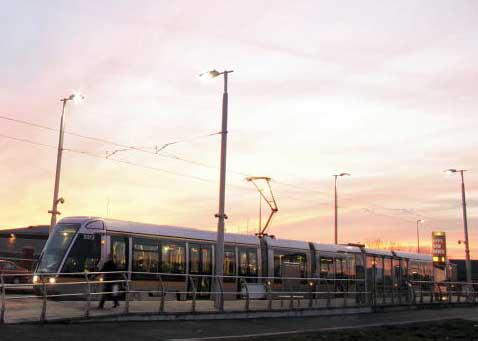When a preconceived solution goes in search of a problem, there is often a detour via the Exchequer.
When the solution is a mammoth construction project, say an underground railway through a city, the detour can be horrendously expensive. Far better to identify the problem first, make sure it outranks the many others seeking public funds, and then try to find the most cost-effective solution, without preconceptions. This businesslike procedure is actually mandated by the Public Spending Code to which all Government departments and agencies are nominally committed. The intention is to avoid waste in the public capital programme.
Unfortunately, the Public Spending Code is routinely ignored. Large projects are conceived and promoted prior to any analysis of need. Bureaucratic and political coalitions are assembled and public relations campaigns initiated, cost estimates deliberately understated and spurious cost-benefit studies commissioned. The result is dodgy project selection and the risk of overshoots in the billions. Recent examples include the National Children’s Hospital and the broadband rollout, where costs way ahead of initial estimates have been incurred.
It is not difficult to devise procedures protecting against expensive mistakes and, on paper, officials at the Department of Finance, latterly the Department of Public Expenditure, have done so. Several episodes of capital programme misdirection in the 1970s spurred the development of a structured process designed to minimise the risk of waste. The problem in Ireland in recent decades has been the failure of politicians to ensure that agreed procedures are adhered to.
Imminent mega-failure
Another mega-failure is imminent and the details were revealed by Michael Brennan on 19 June last in the Sunday Business Post.
Minister for Transport Eamon Ryan plans to seek cabinet approval for the Metrolink underground rail scheme, a single line serving certain of Dublin’s northern suburbs.
The process is important – it appears Ryan wants to seek a railway order through An Bord Pleanála without first publishing the business case for the project, including the latest capital cost estimate, as is required under the Public Spending Code.
The reason for the reluctance to release the business case, which is apparently completed, is that the cost estimate is off the charts.
If Metrolink is likely to cost €10.5bn it will never be built
There have been undenied press reports that the figure has reached €10.5bn, around three times what had previously been indicated. This would be 10 times the cost of the entire Bus Connects project, designed to enhance public transport across the city.
If Metrolink is likely to cost €10.5bn it will never be built – it would serve a single alignment through the airport to Swords, both currently served by frequent bus services using the road tunnel (the Port Tunnel) already built and paid for.
The Port Tunnel has spare capacity through the day and one of the Bus Connects routes will add extra capacity on the same alignment. Even the flexible ingenuity of the Dublin consulting firms which specialise in producing positive cost-benefit evaluations will struggle with this one. Evaluations prepared when the admitted costs were one-third of the latest estimate were unconvincing.
The thousands who missed flights at Dublin airport in recent weeks did not miss them because of problems making their way to the airport.
The minister has indicated that no less than €250m has already been spent, principally by Transport Infrastructure Ireland and the National Transport Authority, over the last 15 years on various iterations of the Metrolink project. If the latest estimate of cost exceeds any plausible figure for benefits, the €250m should be written off, lessons learned and the project cancelled.
If instead the cabinet agrees to the minister’s request and an application is made to An Bord Pleanála for a railway order, the hearing at An Bord Pleanála will be an extravaganza, the biggest planning inquiry ever undertaken in Ireland, and will last for years. Whatever the verdict, subsequent trips to the superior courts are always on the cards.
Enormous volume
Staff at An Bord Pleanála have been complaining about the inadequacy of resources available to process the enormous volume of direct planning applications, appeals and litigation.
In May the board’s deputy chair, Paul Hyde, stepped aside pending an inquiry by senior counsel Remy Farrell into concerns about the disclosure of possible conflicts of interest. This inquiry will further stretch An Bord Pleanála staff resources. This is hardly a good time to be overloading the body with what looks like a no-hope application for a railway project unlikely ever to be built.
There are significant costs yet to be incurred, even if the project is, at the apparent €10.5bn ticket price, a dead duck.
Since the €10.5bn cost estimate, at 2019 prices, cannot be uninvented, it cannot be suppressed either. There is no point pretending that this project will actually be delivered by 2035, regardless of cost. Minister Ryan’s cabinet colleagues should decline to consider the project until the full details are published.










SHARING OPTIONS